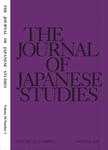版权所有:内蒙古大学图书馆 技术提供:维普资讯• 智图
内蒙古自治区呼和浩特市赛罕区大学西街235号 邮编: 010021

作者机构:Univ Cambridge Dept Psychiat Cambridge CB2 1TN England Univ Cambridge Dept Expt Psychol Cambridge CB2 1TN England
出 版 物:《PSYCHOLOGICAL MEDICINE》 (心理医学)
年 卷 期:1999年第29卷第6期
页 面:1307-1321页
核心收录:
学科分类:0402[教育学-心理学(可授教育学、理学学位)] 1002[医学-临床医学] 10[医学]
主 题:注意力/生理学 双相情感障碍/诊断 双相情感障碍/病理生理学 双相情感障碍/心理学 情绪/生理学 回忆/生理学 神经抑制/生理学 神经心理学测验 额叶前皮质/病理生理学 问题解决/生理学 成年人 女(雌)性 人类 男(雄)性
摘 要:Background. Despite markedly different clinical presentations, few studies have reported differences in neuropsychological functioning between mania and depression. The disinhibited behaviour characteristic of mania and evidence that subgenual prefrontal cortex is differentially activated in mania and depression both suggest that dissociable deficits will emerge on tasks that require inhibitory control and are subserved by ventromedial prefrontal cortex. Methods. Manic patients and controls undertook computerized neuropsychological tests of memory and planning ability. In addition, manic and depressed patients were directly compared with controls on a novel affective shifting task that requires inhibitory control over different components of cognitive and emotional processing. Results. Manic patients were impaired on tests of memory and planning. Importantly, affective shifting performance of manic patients differed from that of depressed patients. Manic patients were impaired in their ability to inhibit behavioural responses and focus attention, but depressed patients were impaired in their ability to shift the focus of attention. Depressed patients exhibited an affective bias for negative stimuli, and we believe this to be the first demonstration of an affective bias for positive stimuli in manic patients. Conclusions. Observed impairments on tests of memory and planning suggest a global pathology for mania consistent with previous profiles for this disorder and similar to established profiles for depression. The results on the affective shifting task demonstrate the presence of mood-congruent bias and dissociable components of inhibitory control in mania and depression. Against a background of memory and planning impairments in the two groups, these findings are consistent with a role for the ventromedial prefrontal cortex in mediating mood-cognition relationships.